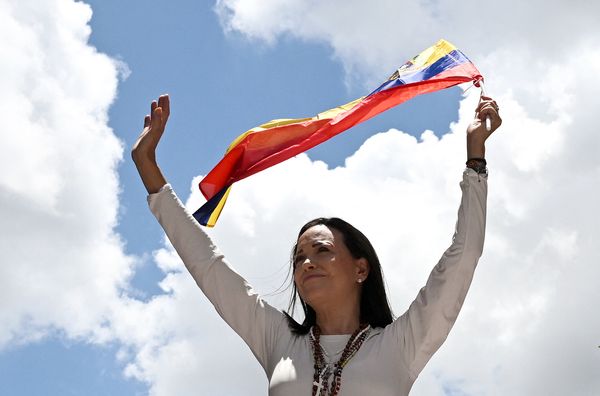So, you say you want to do some gambling but you're afraid you don't have a poker face?
Then go to the metaverse and pick any face you want.
'Pulling in Some Impressive Numbers'
Earlier this year, JPMorgan Chase (JPM) said that the metaverse "will likely infiltrate every sector in some way in the coming years with the market opportunity estimated at over $1 trillion in yearly revenues."
It looks like gambling is part of that mix.
The metaverse is a virtual world in which we interact socially with others through avatars. We could go to a concert, to a restaurant, to an art exhibition, all while using virtual reality headsets and other technological tools.
Online gambling grew dramatically with the Covid-19 pandemic and now the metaverse is taking the next step into a virtual casino experience.
Meta-gamblers can find their favorite games, including blackjack, roulette and baccarat. They can even roll the dice in a cryptocurrency crap game.
Kenny Ching, assistant professor at the WPI Business School, said metaverse or crypto casinos "are online betting platforms where transactions are processed in crypto currency, resulting in decentralized gambling."
"In theory, anyone can play if one has access to crypto currency," he said. "Traditional casino games, especially poker, are currently the most popular. Crypto gambling is nascent but has begun to pull in some impressive numbers."
'Lowers the Cost of Betting'
Ching said the main attraction of metaverse casinos is that by relying on blockchain technology, it promises a higher level of transparency, security and privacy.
"For example the peer-to-peer matching of bets in crypto betting removes the need for a broker, he said, "unlike traditional betting houses or bookmakers. This substantially lowers the cost of betting. It is clearly also more private than a physical casino."
Decentral Games' ICE Poker is a free metaverse poker game where players earn tokens by completing daily challenges and competing against each other on a daily leaderboard.
Decentral Games, which does not have a gambling license, is built in Decentraland, the ethereum-powered decentralized virtual world.
ICE Poker is the most visited place in Decentraland, attracting a third of the platform's 600,000 users.
$ICE is the in-game currency that enables upgrades of in-game items and players have to obtain at least one ICE Wearable either through purchase or delegation. The wearables include shoes, jackets and "money shades."
'100% Provably Fair'
ICE Poker, which pulled in $7.5 million in the first three months of the year, currently has over 100,000 monthly active users.
Decentral Games founder Miles Anthony has said that it has 1,000 users playing poker at any given time.
ICE Poker recently introduced weekly virtual events with live DJs and video streaming support for background ambience within its poker venue.
EarnBet.io runs on BET tokens, their own ethereum variation, and their website claims they pay out 100% house profits to BET token holders every day.
"EarnBet is 100% provably fair," the website said "All bets are recorded on the blockchain."
EarnBet.io said that every bet placed gives users BET tokens, which allows them to receive dividends in several cryptocurrencies, including bitcoin, ethereum and litcoin, "every second, for life."
A Thorny Issue
Edgeless.io bills itself as the world's first ethereum-powered crypto casino and it offers such games as slots, dice, crash, blackjack, and baccarat.
In 2017, Edgeless received a casino license from the Curacao Gaming Commission.
Ching noted that there are potential legal questions especially in jurisdictions where online gambling, let alone crypto gambling, is not legal.
"Further, the issue of taxation remains potentially a thorny one that legislators have barely begun to give clear directions on," he said.
Chris Cylke, senior vice president for government relations for the American Gaming Association, said that "anytime gambling is occurring through illegal or unregulated channels—whether offshore books, unregulated machines, or in the metaverse—it presents significant risks for consumers."
"Unregulated gambling operations do not offer any responsible gaming protections, often are tied to money laundering and other criminal activity, and do not generate any tax revenue for communities,” he said.







